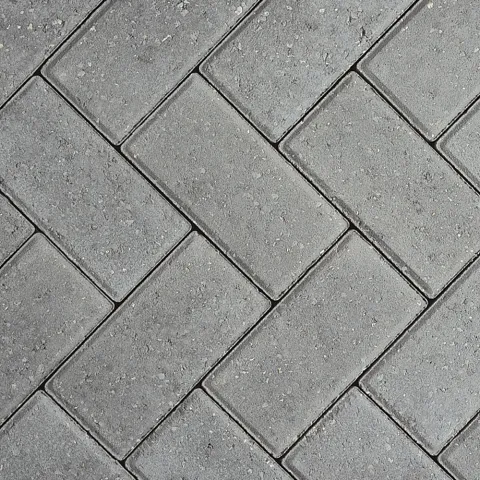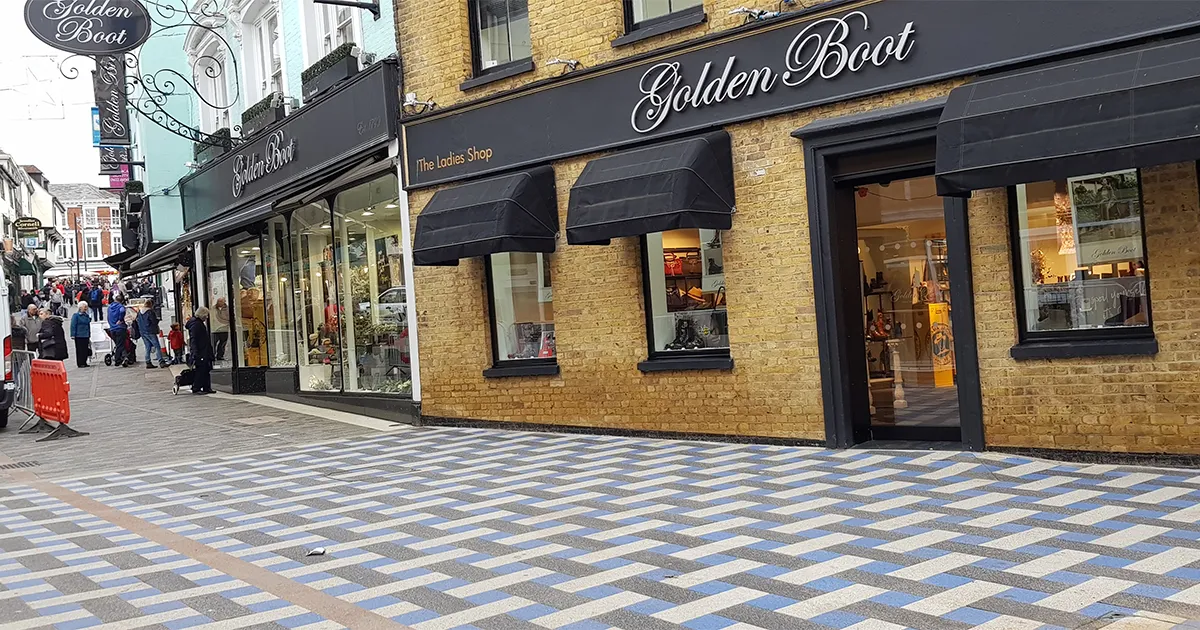An Essential Guide To block paving
Block paving is one of the most well-used surface solutions for hard landscaping. You’ll recognise it from driveways and pavements to car parks, shopping centres and housing developments. Dating back to Roman times, block paving is versatile, durable and stylish, and available in a range of colours and textures to suit any construction project. Our guide explains more about its uses, variations and how it compares with other commercial flooring…
Summary of key points:
- Block paving is a hardstanding surface solution for hard landscaping, dating back to Roman times.
- Made from concrete, block paving is durable, versatile and stylish, available in a range of colors and textures.
- It can be used in a variety of environments, from patios, driveways, and pavements to car parks and loading bays.
- Permeable paving is a key component of an effective SuDS solution, allowing water to drain through discreet spacing nibs to the subbase below.
- Block paving offers unlimited design possibilities with different colors, patterns, shapes, and sizes available.
- Block paving is durable and can last 20-25 years with proper maintenance, including cleaning and sealing.

Read more about our block paving range.
What is block paving?
Block paving is a method of creating a hardstanding area using individual blocks instead of other materials such as concrete, asphalt or screed. Arranged by hand in distinctive patterns, block paving creates a visually appealing design and has decorative uses as well as a practical purpose.
What is it used for?
Functional and stylish, block paving can be used in almost every contemporary environment, from heritage sites to modern street design. Most commonly you’ll have seen it on patios, driveways, pavements and pedestrianised areas. However, thicker paving blocks are also available, capable of withstanding vehicular loads, which makes an ideal solution for HGV, container and dock loading bays, access roads, farm and stable areas, car parks, bus and cycle lanes.

What is block paving made of?
Block paving is typically made from either concrete. Comprising crushed stone, sand and cement, concrete block paving is extremely durable and strong, making it ideal for most hard landscaping projects. It is available in an enormous range of shapes, sizes and colours, from the standard rectangular block to a pyramid design. Concrete block paving can also contain up to 50% recycled material in its production, making it a sustainable choice.

Difference between permeable vs impermeable block paving
Permeable paving is a key component of an effective SuDS solution. The paving is manufactured with specially designed discreet 5mm spacing nibs, allowing water to drain directly through the joints to the subbase below. The joints are filled with clean hard angular 2mm to 5mm joint grit which allows water to infiltrate into the Suds system below while detritus is retained on the paving surface keeping the system free from siltration.

The different patterns and colours
One of the reasons block paving is so popular is because it offers style and substance. Available in a choice of colours, from classic buffs, browns and greys to more striking blues, greens and pink, block paving makes an instant yet long-lasting impact. Further style choices can be made when the paving is laid, with the most popular patterns being herringbone, basketweave or stretcher bond. With individual blocks also available in a range of sizes and thicknesses, block paving offers unlimited design possibilities.
The pros and cons of block paving
Block paving is one of the most versatile hard landscaping products. To help you choose the right solution, its main pros and cons are:
Pros
- Practical, hardwearing and long-lasting performance
- Highly durable with good grip/anti-slip properties
- Excellent visual appeal
- Can be configured in multiple patterns and layouts, or to delineate pedestrian/vehicle areas
- Frost-resistant
- Easily lifted for service/utilities access and reinstated without leaving repair scars
- Manufactured to fixed plan size for ease of design
Cons
- Requires some maintenance to counteract colour fading, weathering or dirt absorption, e.g. using a sealant
- Time consuming to install
- Can be difficult to cut
- Can be more expensive than other paving materials
A guide to the products and projects we have worked together to complete.

Frequently Asked Questions
Block paving is exceptionally durable and can be expected to last reliably for between 20-25 years. The herringbone pattern is considered one of the most long-lasting as its interlocking design creates a sturdy structure. Proper maintenance, including cleaning and sealing, will enhance the appearance and lifespan of your block paving.
No, block paving is more expensive for two reasons: the blocks themselves take longer to manufacture; and the installation process is far more time-consuming. Asphalt can be installed easily and dries quickly, whereas block paving is laid individually and has a longer setting time. However, in the long term, repairs for block paving are much more straightforward with individual blocks able to be removed and replaced efficiently, making it a cost-effective and more visually appealing solution.
As mentioned above, the difference between block and flag paving are their dimensions. To comply with the British Standard EN 1339, a flag is only classified as a flag if its overall length divided by its thickness is greater than four. For example, a 350mm unit divided by 80mm thickness equals 4.375 and is therefore a flag. If the length was reduced to 300mm, the division would only equal 3.75 and would be considered a block.
All paving requires some form of drainage, whether inherent or as part of a wider solution. All our block paving, and most of our flag paving, can be manufactured as permeable or impermeable, depending on the requirement. Our Infilta range of permeable paving currently incorporates Stonemaster, Andover Textured, Woburn Rumbled and Europa, and can be used as part of a sustainable drainage system (SuDS) in conjunction with the other materials that make up the full solution.






